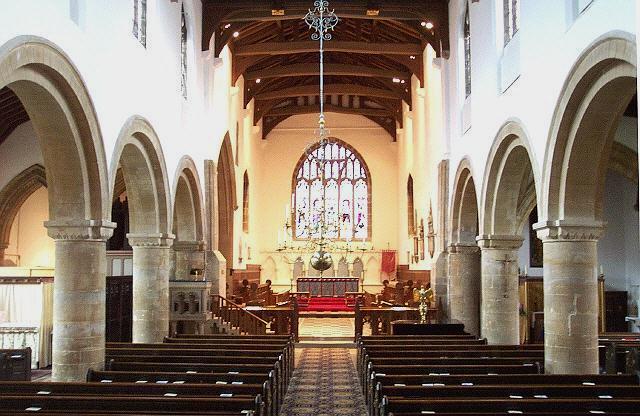Orrm on:
[Wikipedia]
[Google]
[Amazon]
 Orrm, also known as Orrmin (
Orrm, also known as Orrmin (
 According to the work's dedication, Orrm wrote the ''Ormulum'' at the behest of Brother Walter, who was his brother both (biologically, "after the flesh's kind") and as a fellow Augustinian canon. With this information, and the evidence of the dialect of the text, it is possible to propose a place of origin with reasonable certainty.
Some scholars, from a suggestion by Henry Bradley, have regarded the likely origin as
According to the work's dedication, Orrm wrote the ''Ormulum'' at the behest of Brother Walter, who was his brother both (biologically, "after the flesh's kind") and as a fellow Augustinian canon. With this information, and the evidence of the dialect of the text, it is possible to propose a place of origin with reasonable certainty.
Some scholars, from a suggestion by Henry Bradley, have regarded the likely origin as
 Orrm, also known as Orrmin (
Orrm, also known as Orrmin (fl.
''Floruit'' (; abbreviated fl. or occasionally flor.; from Latin for "they flourished") denotes a date or period during which a person was known to have been alive or active. In English, the unabbreviated word may also be used as a noun indicatin ...
1150s–80s), was an Augustinian canon from south Lincolnshire who wrote the '' Ormulum'', a collection of verse homilies that is the oldest English autograph and one of the most significant records of Middle English. His work is a successful example of homiletics translating Latin learning to balance the needs of his fellow canons, who likely spoke Anglo-Norman French, with those of lay English-speaking audiences.
Name
Orrm names himself at the end of the work's dedication: (Ded. 323–24: 'Where I was christened, I was named Orrmin by name'). This name derives from Old Norse, meaning ''worm'', ''serpent'' or ''dragon''. With the suffix of "myn" for "man" (hence "Orrmin"), it was a common name throughout the Danelaw area of England. At the start of the preface, the author identifies himself again, using a different spelling of his name: "Orrm". The metre dictated the choice between each of the two forms of the name. The title of the collection, ''Ormulum'', is modelled after the Latin word ("mirror"), so popular in the title of medieval Latin non-fiction works that the term speculum literature is used for the genre. The Danish name is not unexpected, as the language of the ''Ormulum'', an East Midlands dialect, is of the Danelaw. It includes numerous Old Norse phrases (particularly doublets, where an English and Old Norse term are co-joined), but there are very few French influences on Orrm's language.Place and dates of activity
 According to the work's dedication, Orrm wrote the ''Ormulum'' at the behest of Brother Walter, who was his brother both (biologically, "after the flesh's kind") and as a fellow Augustinian canon. With this information, and the evidence of the dialect of the text, it is possible to propose a place of origin with reasonable certainty.
Some scholars, from a suggestion by Henry Bradley, have regarded the likely origin as
According to the work's dedication, Orrm wrote the ''Ormulum'' at the behest of Brother Walter, who was his brother both (biologically, "after the flesh's kind") and as a fellow Augustinian canon. With this information, and the evidence of the dialect of the text, it is possible to propose a place of origin with reasonable certainty.
Some scholars, from a suggestion by Henry Bradley, have regarded the likely origin as Elsham Priory
Elsham Priory was an Augustinian monastery in Lincolnshire, England. The only surviving trace is a fishpond in the grounds of Elsham Hall
Elsham Hall is a 17th-century English country house situated in its own parkland in Elsham, North Lincolnshi ...
in north Lincolnshire. In the mid-1990s, it became widely accepted that Orrm wrote in the Bourne Abbey
Bourne Abbey and the Parish Church of St. Peter and St. Paul is a scheduled Grade I church in Bourne, Lincolnshire, England. The building remains in parochial use, despite the 16th-century Dissolution, as the nave was used by the parish, probably ...
in Bourne, Lincolnshire. Two additional pieces of evidence support this conjecture: firstly, Arrouaisian canons established the abbey in 1138, and secondly, the work includes dedicatory prayers to Peter and Paul, the patrons of Bourne Abbey. The Arrouaisian rule was largely that of Augustine; its houses often are loosely referred to as Augustinian.
Orrm's dates of activity are not known. From palaeographic evidence, Orrm may have begun the work as early as 1150 and worked on it until the 1180s.
References
External links
* {{authority control 12th-century English Roman Catholic theologians 12th-century writers in Latin Canonical Augustinian theologians Canonical Augustinian scholars Middle English poets 12th-century English writers 12th-century English people English male poets Latin–English translators 12th-century births